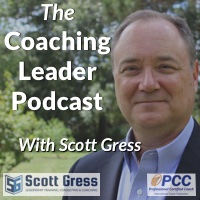
I work hard. I put in a lot of hours. I am probably working harder than I have ever worked. But nothing seems to change. Take the worship service for example. The numbers are softening if not declining. I work hard on the message. The music is solid. Of course we aren’t a church of hundreds so we don’t have the money or talent of other places but it is good. We are generally friendly and upbeat. Yet we can’t seem to get any traction. The same with Bible class. Participation has dwindled. But I spend even more time preparing. We push it as important. We let people know what we are studying and why. Yet we can’t seem to get any traction. The same with our programming. We invite people. We advertise and announce it on Sunday but we can’t seem to get anywhere. The congregation is getting older and we have fewer new people, hardly any in fact. It seems as if I am even more diligent in my efforts but the results are getting worse. I try to console myself that this is just a down season and things will turn around soon. But I may be in denial. I’m discouraged.
First, you are not alone. There are many churches and church leaders who are experiencing the same things. Now that doesn’t mean you can brush off all your concerns and excuse yourself and blame society or even your members. Many a pastor and church leader have slipped into laziness, accusing others and getting defensive. Others simply get more and more despondent. They try hard but know something isn’t working and get beat down by it all. In the meantime they try to make it to retirement. Others go off the rails at this point and turn to unhealthy coping mechanisms. None of these responses is the way of wisdom. Instead wisdom steps back to reflect and learn and then reengage. But that’s hard to do with the calendar full of meetings and encountering discouraged people all the while Sunday is coming with all its responsibilities.
Some take the positive step of trying to learn. They reason that there must be some churches that are doing well. So they scour the internet for stories, tips, tricks or even magic bullets to turn things around. They listen to podcasts, buy the hot books and programs that others seem to be so interested in and they attend the latest conferences. Good! Stretch your thinking. Don’t give up. Yet somehow it doesn’t lead to real change. So what’s wrong?
The problem likely isn’t in your preaching or programing. It isn’t because you don’t have the latest and greatest music, technology or charismatic person. The source of your discouragement is that the answers you have been trying are not really addressing the "new problem" you are facing.
For example, if you remember Blockbuster video, they were facing decreasing business as people started to order DVD’s by mail from Netflix. Then things shifted again when streaming video began to replace VHS and DVD’s. So in a very short time it became clear that the world had changed. It is easier to fire up your smart phone, Amazon Fire TV, Roku, Chromecast or smart television and stream a movie you want to see without leaving your seat. This was a "new problem" they were facing. There was no way Blockbuster could attract foot traffic to their brick and mortar stores by posters advertising the latest releases or brightening up their stores with a refreshed look. It just wasn’t going to make any difference and we know what happened to Blockbuster.
A lesson can be learned here for churches. The answer isn’t in working harder, but smarter. Of course, churches need to do as well as they can in their stock in trade with faithful Gospel preaching and pastoral care and being the church with all its grace and love. Yet the world has changed and we are facing new problems. We can either get discouraged or pause and reflect and make careful adjustments. And no, we are not talking about certain worship styles or staff members or programs. The answer has much more to do with our assumptions and understanding and definition of the problem. That is because our understanding of the problem leads to our attempts at a solution. So if the solution isn’t working, then we probably didn’t quite get the problem right.
Just like a doctor will diagnose a disease and try a treatment. Afterwards, if the treatment doesn’t work, then they know the diagnosis was likely off. I know of a woman who suffered for years under doctors who misdiagnosed her and began to blame her for the problem. Then she found the right doctor who discovered what should have been an easy diagnosis. The same is true with churches. Reflect on what you are assuming, what you are naming and what it is you are facing. Then identify some possible first steps after which you can evaluate and debrief the results. This is not easy, since we are so hardwired in our assumptions. So it often requires the help of an outsider or a coach to help us reflect deeply and honestly. Yet it is the antidote to our discouragement as identifying those assumptions leads to greater awareness and better strategic action steps.
Over the next few blogs we will look at 5 shifts in our assumptions and thinking that will affect our actions. I invite you to reflect with me and share your thoughts.
Sign up for our email newsletter with new blog posts and information and announcements:
Scott Gress is called by Lutheran Counseling Services and partners with the FL-GA District of the Lutheran Church as an independent contractor. He specializes in Leadership Training, Consulting, Coaching and Coach Training. Contact Scott to continue the conversation or experience a free sample coaching session. 561-542-4472, scottgress@me.com or scottgress.com
"Coaching leaders of leaders"
Check out the new: Coaching Leader Podcast!

